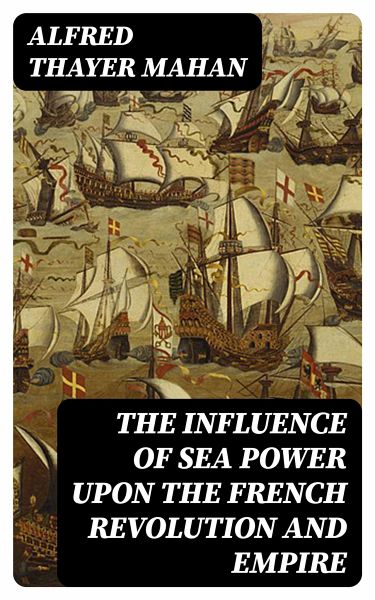
The Influence of Sea Power upon the French Revolution and Empire (eBook, ePUB)
Versandkostenfrei!
Sofort per Download lieferbar
1,99 €
inkl. MwSt.
Weitere Ausgaben:

PAYBACK Punkte
0 °P sammeln!
Alfred Thayer Mahan's seminal work, "The Influence of Sea Power upon the French Revolution and Empire," intricately explores the pivotal role of naval power in shaping the political landscape of the late 18th and early 19th centuries. Through rigorous historical analysis and persuasive argumentation, Mahan elucidates how maritime supremacy influenced the outcomes of the French Revolution and the Napoleonic Wars, setting the stage for modern warfare and international relations. His scholarly approach is marked by a blend of meticulous research and an engaging narrative style, making complex geo...
Alfred Thayer Mahan's seminal work, "The Influence of Sea Power upon the French Revolution and Empire," intricately explores the pivotal role of naval power in shaping the political landscape of the late 18th and early 19th centuries. Through rigorous historical analysis and persuasive argumentation, Mahan elucidates how maritime supremacy influenced the outcomes of the French Revolution and the Napoleonic Wars, setting the stage for modern warfare and international relations. His scholarly approach is marked by a blend of meticulous research and an engaging narrative style, making complex geopolitical concepts accessible to a wide audience. Born in 1840, Mahan was a naval officer and historian whose career granted him valuable insights into military strategy and maritime affairs. His experiences during the height of the age of sail allowed him to appreciate the significance of naval dominance, which he believed was crucial for national prosperity and security. This profound understanding motivated Mahan to investigate the historical precedents of sea power, ultimately leading to his influential theories that would affect naval strategy across the globe. I highly recommend this book to anyone interested in military history, naval strategy, and the interplay between sea power and statecraft. Mahan's arguments remain vital to comprehending contemporary geopolitical dynamics, as they underscore the enduring importance of naval capabilities in achieving national objectives.
Dieser Download kann aus rechtlichen Gründen nur mit Rechnungsadresse in A, B, BG, CY, CZ, D, DK, EW, E, FIN, F, GR, H, IRL, I, LT, L, LR, M, NL, PL, P, R, S, SLO, SK ausgeliefert werden.













